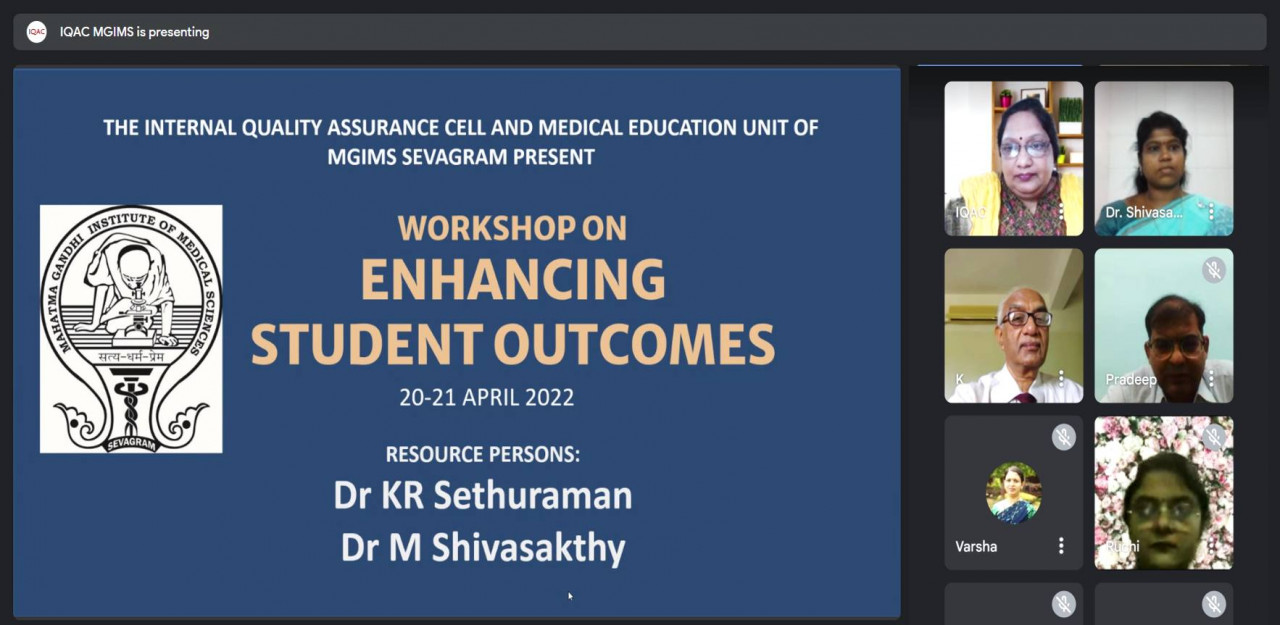On 20-21 Apr 2022, the Internal Quality Assurance Cell and the Medical Education Unit of MGIMS Sevagram collaboratively conducted an online workshop on ‘Enhancing student outcome’. The aim of this workshop was to discuss the issues faced by medical teachers pertaining to the student’s performances.
Dr Shivasakthy Manivasakan (Deputy Director of the Centre for Health Professions Education and Professor of the Department of Prosthodontics at the Indira Gandhi Institute of Dental Sciences, Sri Balaji Vidyapeeth, Puducherry) and Dr KR Sethuraman (Former Vice Chancellor, Balaji Vidyapeeth, Puducherry, and Medical Dean of AIMST Varsity, Malaysia and Eminent Medical Educator) were the resource persons for the workshop.
“Despite the fact that medical students are selected through a gruelling and highly competitive selection process, the pressures of medical school can be daunting for several learners”, said Dr Anshu (Coordinator of the Workshop)
Around thirty two faculty members of several departments of MGIMS participated in the interactive two-day online workshop. Dr Shivasakthy who has worked on her PhD on the identification and support of Students Needing Additional Curricular Support (SNACS) under Dr Sethuraman’s supervision, discussed the different reasons why students falter academically using real-life cases. It was unanimously agreed that one needs to identify the academic and non-academic reasons which could lead to poor academic performance. An exercise was assigned where faculty correlated performance in the internal assessment with the University scores. On day two, solutions and strategies on how to deal with different kinds of learners who needed either academic or psychological support were discussed. Dr Sethuraman spoke on salutogenesis and the sense of coherence. He discussed complex real-life situations and participants discussed approaches to resolve these scenarios.
Speaking at the workshop, Dean MGIMS, Dr Nitin Gangane thanked the resource persons for helping the MGIMS faculty draft a strategy to motivate both low performers and high achievers. “The MEU of MGIMS has been conducting workshops on Developing Good Study Skills since 2015”, Dr Ganganae informed. Dr Anshu told participants that the IQAC had designed a strategy that would be implemented in all departments. “The plan is to identify all poor academic performers right at the beginning of the year, so that individualized attention, mentoring, and coaching strategies can be applied to them. Tracking their performance closely will help enhance student results at the institutional level”, she added.

